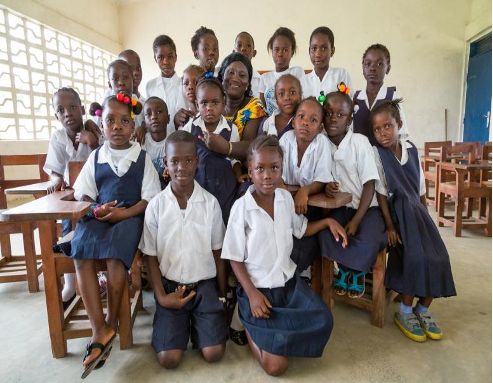A West African country on the coast, Liberia was once infamous for civil war, so-called “blood diamonds” and public health crises like the recent Ebola humanitarian crisis. But, soon, Liberia will be known for its data transparency, management, and sharing more than any of its past ills.
In September 2011, Liberia joined the Open Government Partnership (OGP) demonstrating a strong commitment to fostering an open and peaceful society through the establishment of mechanisms to ensure good governance, transparency, and citizen engagement.
 The first OGP action plan emphasized improving citizens’ access to information, increasing citizen participation in public life, enforcing accountability and integrity among public officials, and improving the information and communication technology (ICT) environment (including access to eGovernment services).
The first OGP action plan emphasized improving citizens’ access to information, increasing citizen participation in public life, enforcing accountability and integrity among public officials, and improving the information and communication technology (ICT) environment (including access to eGovernment services).
The Digital revolution’s ultimate legacy will be determined not by technology, but by how it is used. African countries that take advantage of the opportunities and limit the risk inherent in emerging technology may achieve greater peace and prosperity.
Across the African continent, the relentless spread of networks, sensors, artificial intelligence, and automation is driving, a revolution to an unknown destination. Emerging technologies such as CCTV cameras with facial recognition systems, drones, robots, and ‘smart cities’ are proliferating.
 Digitization is improving government revenue collection and curbing corruption. Cameras and facial recognition technologies are helping authorities respond to terrorist attacks.
Digitization is improving government revenue collection and curbing corruption. Cameras and facial recognition technologies are helping authorities respond to terrorist attacks.
Drones deliver lifesaving medical supplies. Yet with each advance there are costs. However, emerging technology is having a powerful impact on the security and stability of African states.
Liberia has thus embraced this revolution and it has brought advancement and progress in many sectors of the country including education, economy, government, health, agriculture, and many others.
The Liberian education system is recovering after decades of civil instability. The long-standing effects of two civil wars, exacerbated by school closures during the 2014-2015 Ebola outbreak, left Liberia with a fragile education system and even weaker information and communication technology (ICT) infrastructure.
It is for this reason that the USAID Digital Liberia and e-Government Capacity Building Activity was started. The project helped address these issues by improving connectivity and access to information across the country. Digital Liberia partnered with the University of Liberia to develop a comprehensive connectivity roadmap.
The project procured and installed Wi-Fi equipment for more reliable internet access and linked four university campuses with local internet. The university’s chief information officer Dr Darren Wilkins; finds that encouraging “the University of Liberia is undergoing a major transition, which includes digitization, automation of services and connection to global resources for education and research” he says “to achieve this goal, ICT plays a crucial role. The Digital Liberia e-Government projects assistance in building a campus network significantly impacts our efforts to achieve a 21st-century education and research environment.”
Enhanced access to the internet is already paying off, as in 2019 before the COVID-19 pandemic brought the world to a halt, Digital Liberia helped the University of Liberia expand online learning opportunities for students by launching a new online platform – UL Online. It helped train its professors on ways to integrate the e-learning platforms Moodle into their teaching.
Initiatives such as the Liberia Research and Education Network (LRREN) are a part of a large strategy to build ICT capacity in Liberia and are key to the Liberian government’s e-Government strategy for strengthening ICT infrastructure and improving the availability of ICT services in the country.
To stimulate the economy, boost trust in government and build greater accountability, the government of Liberia, with the support of development partners such as the World Bank and USAID, is investing heavily in ICT infrastructure and data literacy skills training (among other sectors) to address the country’s low employment rate, the meagre economic key complement to such interventions is the embrace of an open data initiative.
Open data initiative allows for capacity building and training of government officials, ICT infrastructure, digitalization and dissemination of data in open formats, and promotion of the use re-use of government data. Liberia has the policies needed to improve government data disclosure, management, and use (not to mention the right to access information). To develop an open data ecosystem, as the government of Liberia is committed itself to, national policies need to be better implemented.
Liberia’s development can and should be based on a shared and open knowledge-based society, with widely available ICT to empower citizens and the private sector. And this can be achieved through an adaptive government willing to change and improve the lives of its citizens.
Given the pace of change in today’s globalized world, and the urgency of the challenge posed by the fourth industrial revolution, African governments need to focus as much on enabling effective policymaking as they do on specific policy measures themselves. The adaptive government will be central to achieving this.


